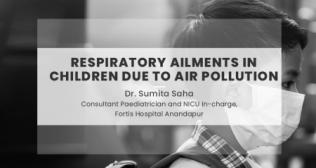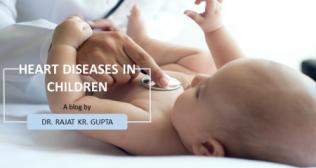
Paediatrics
High Blood Pressure In Kids!
Dr. Rahul Nagpal Nov 25, 2014
 High blood pressure, also called hypertension, is a condition most often associated with adults. But kids can have high blood pressure too, even as infants
High blood pressure, also called hypertension, is a condition most often associated with adults. But kids can have high blood pressure too, even as infants
An estimated three per cent of children have high Blood Pressure (BP). In babies, it’s usually caused by prematurity or problems with the kidneys or heart. While hypertension is far more common among adults, the incidence among kids is on the rise, a trend that experts link to the increase in childhood obesity. Many kids and teens with high BP have no other health problem, but do have a family history of hypertension and an unhealthy lifestyle — a bad diet, excess weight, stress and insufficient physical activity. If it goes untreated, high BP can eventually lead to damage of the heart, brain, kidneys and eyes. But if it’s caught early, monitored and treated, a child with high BP can lead an active, normal life.
Understanding BP
BP is the pressure that blood exerts against the blood vessel walls as the heart pumps. The pressure increases when the heart contracts and pushes blood into the vessels and lowers when the heart relaxes, but there’s always a certain amount of pressure in the arteries.
BP changes from minute to minute and is affected by activity and rest, body temperature, diet, emotional state, posture and medications.
Long-term effects of high BP
When someone has high BP, the heart and arteries have a much heavier workload. The heart must pump harder and the arteries are under greater strain as they carry blood. If high blood pressure continues for a long time, the heart and arteries may no longer work as well as they should. Other organs that are receiving the blood such as the kidneys and brain may also be affected.
Having high BP puts someone at a higher risk for stroke, heart attack, kidney failure, loss of vision and atherosclerosis (hardening of the arteries). While high BP doesn’t always cause symptoms, it still affects the body and puts a person at risk for those long-term health problems. In rare cases, severe hypertension can cause headache, visual changes, dizziness, nosebleeds, heart palpitations and nausea. If your child has severe high BP and has any of these symptoms, seek medical care immediately.
In kids, high BP is defined as a blood pressure greater than the 95th percentile for their age, height and gender (in other words, 95 per cent of kids of the same age, height and gender will have BP below this number).It’s not unusual for a first BP reading to be high because a child is nervous, so the doctor will likely take three readings and use an average of the three to determine whether your child has high BP or is at risk for developing it.
Causes
Causes of high BP differ, depending on the age of the child. The younger the child, more the chances that high BP is linked to some other illness. High BP among infants most commonly occurs in those born prematurely. Some newborns have high BP because of problems with the kidneys (most commonly), lungs, heart or vascular system.
Among school-going kids and teens, hypertension is usually linked to excess weight. In some cases it’s due to a problem with the kidneys, although other conditions — such as abnormalities in the blood vessels and hormonal disorders — can also be responsible. Some medications (such as steroids or oral contraceptives) can lead to high BP, as can over consumption of alcohol and illegal drugs.
Diagnosis
Since high BP usually doesn’t produce any symptoms, diagnosing the condition in kids can be tricky. BP varies a lot from day to day, so several BP check-ups are necessary to make the diagnosis (unless the pressure is very high when treatment is needed promptly).
The only way to know whether a child has high BP is to get it checked regularly. It’s often helpful to get BP readings away from the doctor’s office, i.e. at school or at home if there is a BP monitoring device available. These readings should always be done while resting. Doctors usually start measuring BP during routine check-ups when kids are three years old.
Treating High BP
If an underlying illness is causing hypertension, treating that illness may be enough to get the blood pressure back to normal. If there’s no underlying illness, the doctor may recommend weight loss, increased intake of fruits and vegetables, decreased salt intake, increased exercise and even relaxation techniques. Adolescents with hypertension should also quit or never start smoking, which can worsen the long-term associated heart problems.
Categories
Clear allਡਾਕਟਰ ਨੂੰ ਮਿਲੋ

Dr. Rahul Nagpal
PRINCIPAL DIRECTOR & HOD PAEDIATRICS & NEONATOLOGY | Fortis Vasant Kunj
- Paediatrics | Neonatology | Paediatric Endocrinology | Paediatric Nephrology | Paediatric Neurology | Paediatric Pulmonology | Paediatrics
-
32 Years
-
2000

















